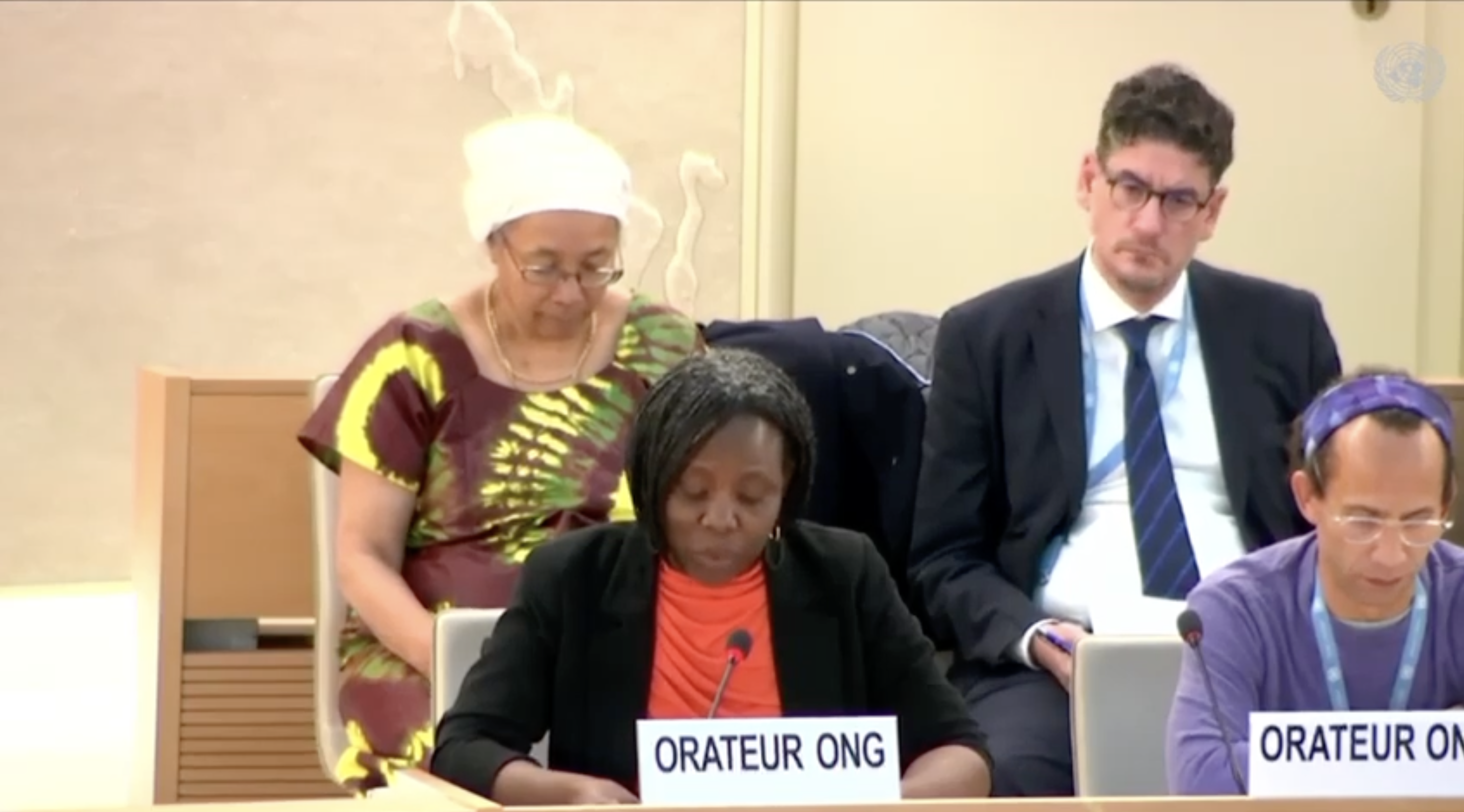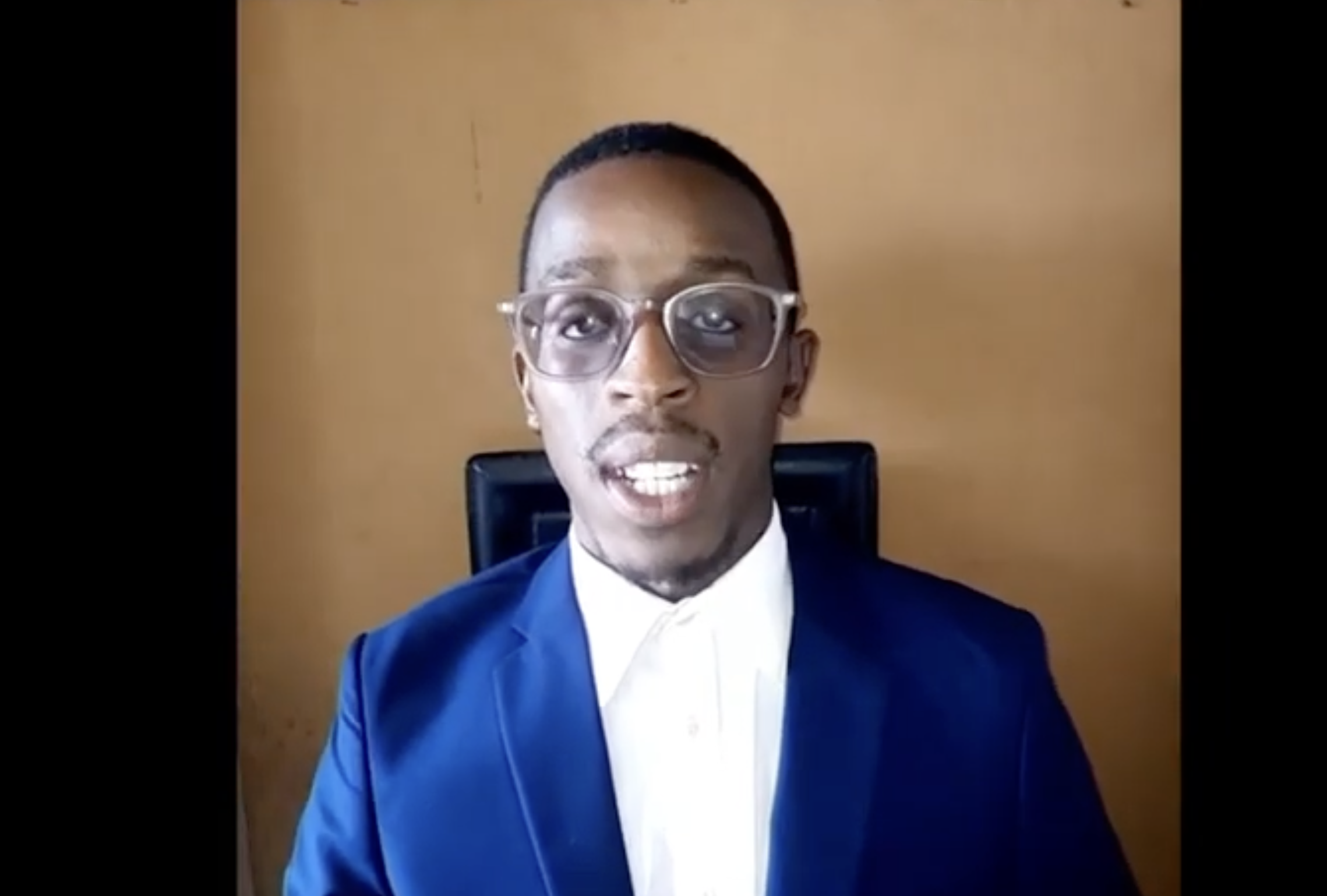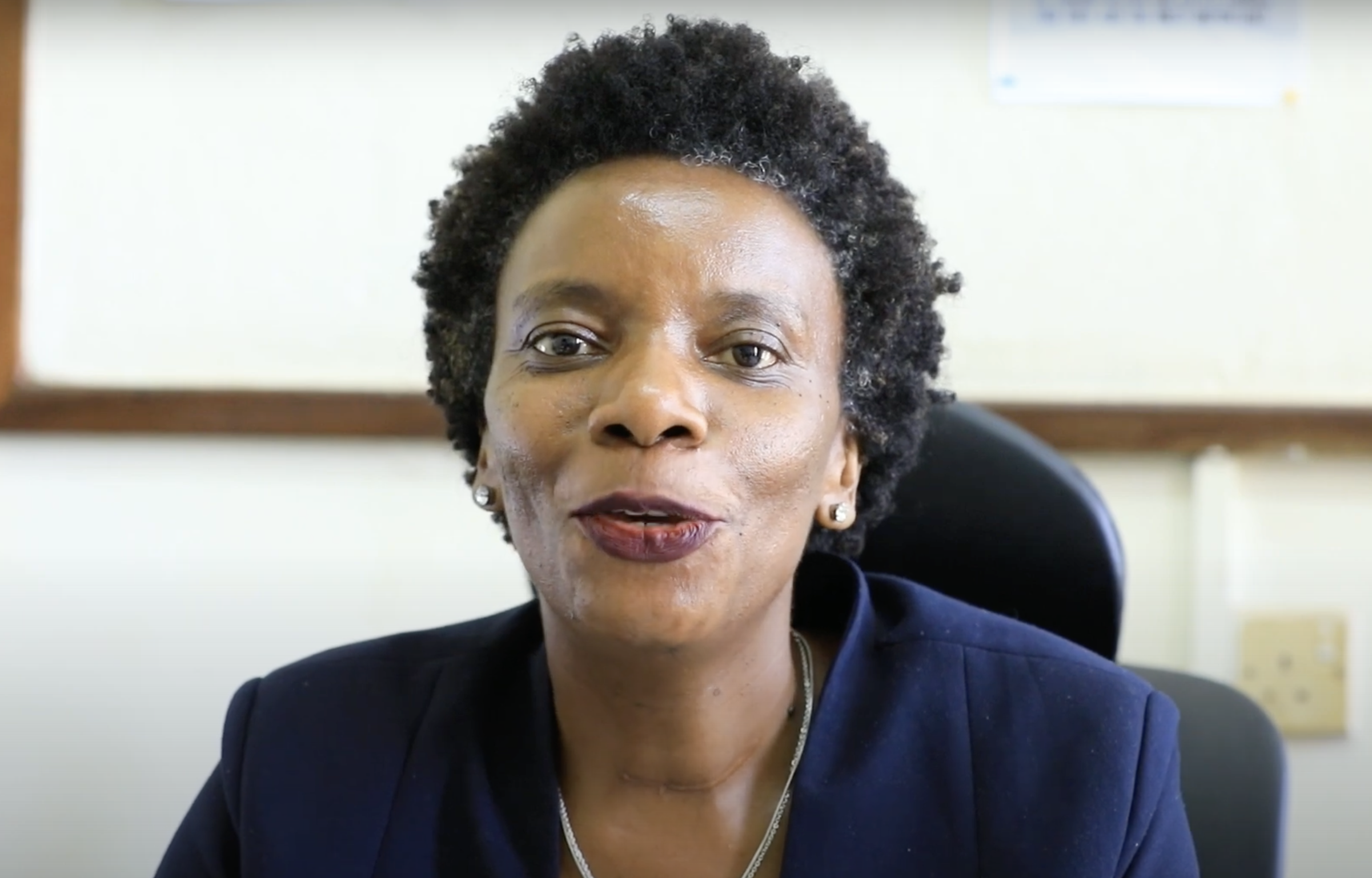HRC56: Last Dignity Matters
The 56th Session of the Human Rights Council
18 June – 12 July 2024
Item 3 – Interactive Dialogue with the Special Rapporteur on extrajudicial, summary or arbitrary executions
26 June 2024
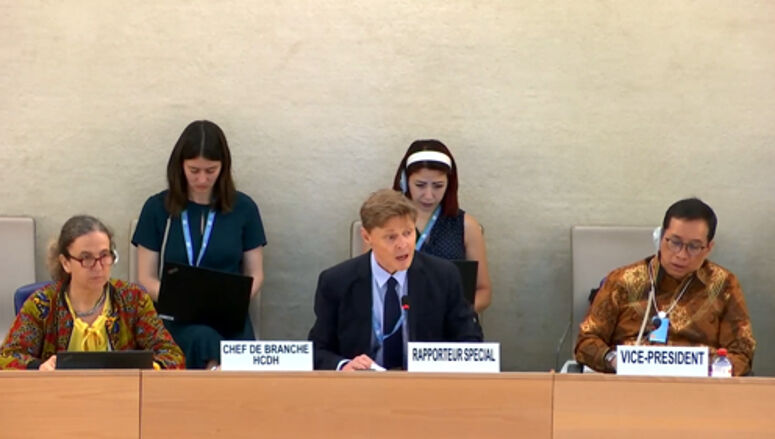
By Cheong H. Chan / GICJ
Executive summary
In today’s world, the protection of the dead goes beyond wars. Natural disasters, pandemics and domestic extrajudicial executions happen more frequently and, at times, on larger scales. Morris Tidball-Binz, the Special Rapporteur on Extrajudicial, Summary or Arbitrary Executions, concluded that States should cooperate to set out robust guiding principles for dealing with dead bodies in different contexts.
On 26 June 2024, at the 13th meeting of the 56th Regular Session of the Human Rights Council, the report on Extrajudicial, Summary or Arbitrary Executions (A/HRC/56/56) was considered. Mr Tidball-Binz opened the interactive session by presenting the findings of his latest report, which covered a range of topics relating to the protection of the deceased. A central part of the report was dedicated to extrajudicial, summary or arbitrary executions. Still, other sections discussed States’ unpreparedness in handling corpses in disasters and pandemics, best practices for treating dead bodies in armed conflicts, deaths during detention and the like.
In the interactive dialogue, delegates from many countries expressed concern over the situation in Ukraine and Gaza. They discussed the ill-treatment of the living and the dead in both wars. Honduras, the concerned State in this session, reported on its law enforcement reform. Other topics of discussion included climate change, articifical intelligence (AI)-powered lethal weapons, and others.
Geneva International Centre for Justice (GICJ) congratulates the Special Rapporteur for his report on extrajudicial, summary or arbitrary executions. During his mandate, he visited Honduras and Ukraine, among other countries. GICJ remains extremely concerned about the developments in Ukraine and Palestine. We advocate that a high universal standard for treating dead bodies is imperative for upholding human dignity while being constructive in investigating potential unlawful killings. Meanwhile, stronger international human rights laws are needed to restrict non-compliant States’ atrocities in both armed conflicts and domestic extrajudicial executions.
Background
The Special Rapporteur issued a call for input to produce the report and received 30 submissions. He then researched the laws, policies, and cases relating to the protection of the dead and interviewed experts. During his mandate, the Special Rapporteur also visited Honduras and Ukraine.
The report presented at the 56th session (A/HRC/56/56) covered unlawful killings, post-execution treatments, treatments for minority groups, deaths in armed conflicts and emergencies from international human rights law, humanitarian law and international criminal law dimensions. It also discussed examples from specific countries and incidents.
The Special Rapporteur confirmed the right to dignity of the dead in his report and opening speech. He acknowledged that countries like Chile, France, India, and Kenya recognised the dignity of the dead in their national laws. International protocols governing the respectful treatment of the dead in emergencies, for example, those published by the International Committee of the Red Cross (ICRC) and Pan American Health Organization, also exist.
The Minnesota Protocol on the Investigation of Potentially Unlawful Death forms the foundation for investigating extrajudicial executions. It sets out the principles for protecting the dead. However, the jurisprudence of this area of law varies widely across jurisdictions due to the huge impact brought by culture and tradition. While many countries have soft or hard laws for the treatment of the dead, huge differences persist. Extrajudicial and summary executions are pervasive in some countries.
For arbitrary executions and deaths in custody, the Minnesota Protocol requires countries to promptly and impartially investigate potentially unlawful killings to uphold the right to life. The Protocol and the Principles on the Effective Prevention and Investigation of Extra-legal, Arbitrary and Summary Executions put forward common investigative standards and guidelines. An investigation should comprise a full forensic investigation of relevant crime scenes and an autopsy of the human remains. Those procedures aim to facilitate later-stage identification processes.
Report
The recognised rights of the dead
In the report, Mr Tidball-Binz cited several rulings to set the scene for discussion. In Blake v. Guatemala, the Inter-American Court of Human Rights ruled that the concealment of the plaintiff’s whereabouts and human remains violated the prohibition against torture and ill-treatment. Furthermore, in Guzmán Medina y otros v. Colombia, the Inter-American Court of Human Rights held that family members had the right to know the fate of their loved ones and the whereabouts of their remains, which officials must try all means to identify. In Sabanchiyeva and others v. Russia, the European Court of Human Rights opined that withholding the body of an alleged terrorist conflicted with Article 8 of the European Convention of Human Rights, which protects private and family life.
In Prosecutor v. Krstić, the International Tribunal for the Prosecution of Persons Responsible for Serious Violations of International Humanitarian Law Committed in the Territory of the Former Yugoslavia used the ill-treatment of dead bodies as evidence of deliberate destruction of Bosnian Muslims and genocide. The Appeals Chamber eventually reversed the genocide charges to aiding and abetting genocide, given that the defendant lacked the intent to destroy the targeted group. However, the trial court judgment showed the treatment of the dead alone is sufficient for constituting genocide.
International humanitarian law also stipulates that in armed conflicts, involved countries should search for the dead timely and prevent the despoilment and mutilation of corpses, which is a war crime under Article 8(2) of the Rome Statute.
The above judgments and law showed the judiciary’s unequivocal stance on the rights of the deceased. However, there were variations in practice, especially at the administrative level. In the report and the interactive dialogue, the Special Rapporteur discussed several cases that he had closely studied during his mandate.
Mr Tidball-Binz stated that a British captain spent six weeks building a cemetery for the killed soldiers in the Falkland Islands War between Argentina and the United Kingdom in 1982. He commended the detailed accounting and subsequent treatments, which showed respect to the deceased. This case study inevitably made people think of the war in Ukraine, where tens of thousands of soldiers have lost their lives. As the exchange of war prisoners at times poses difficulty, the exchange of the dead is even more challenging. The potential formation of a war tribunal would also obstruct such exchanges. Meanwhile, exchanging hostages is challenging between Israel and Hamas. The obstruction of humanitarian aid would preclude the possibility of building cemeteries for the dead during the war. For information about Argentina’s domestic treatments concerning arbitrary executions, please consult the Report of the Special Rapporteur on extrajudicial, summary or arbitrary executions for his visit to the country published during the 53rd Human Rights Council.
Narrow scope of international human rights law
The Special Rapporteur observed that the protections for the dead are often broader in national laws than in international human rights law (IHRL). He included positive domestic examples, such as in 2023, when the Chilean government initiated a search for over 1,400 people detained and executed during the Pinochet regime between 1973 and 1990. Another example is in Spain, the 2022 Law on Democratic Memory mandated the continued recovery of victims of the Spanish Civil War and the protection of the rights of families to truth and a dignified disposition of their deceased families.
Since the Special Rapporteur did not discuss the reasons triggering those positive actions from the governments, we could only learn that there was much room for governments to increase the protection of the dead and their families. However, from a societal perspective, the social and historical context which gave rise to those initiatives was worth studying. Many countries, including Honduras, the concerned State in this session, had had a troubled time and were trying to remedy the wrong in the past. Relying on the government’s goodwill for reconciliation could be fragile. Knowing what the civil society or the international community could do would be valuable.
Another issue concerning national reconciliation was how to make it happen. Some countries have survived hard times, but the current regimes still have relationships with past dictators. Although new atrocities could be avoided, remedying the wrong and asserting the ordinary people’s rights were still difficult, if not unthinkable. In those cases, protection of the dead, which might imply the revelation of part of the truth, would haunt the current regimes. Although suggesting that civil society could bypass the officials to initiate strong protection would be overly optimistic, there should be discussion on measures for coping with such circumstances, for example, on how to preserve evidence and protect the whistleblowers.
Limited obligations under existing international human rights law
One of the Special Rapporteur’s most important observations was that while international humanitarian law contained detailed obligations for State parties in conflict, no equivalent was found in existing international human rights law. As a result, there was a discrepancy in legal protections for persons who died in armed conflicts and those for persons who were killed in peace times. The Special Rapporteur suggested that most protections in human rights law were inferred from broader rights for their application to dead bodies. Thus, lives lost in non-conflict disasters like migration and climate change were thinly protected. Given that such events became more frequent, it was imperative to strengthen peacetime human rights protection.
Violation of the right to life in domestic settings deserved more attention. The Rome Statute has provisions for war crimes, genocide and crimes of aggression. However, when those calamities happened within a domestic context, law enforcement became more challenging. For instance, the International Criminal Court had issued warrants for Vladimir Putin, Benjamin Netanyahu and Hamas leaders. However, the Court had not yet taken any substantial action against the perpetrators behind the forced displacement of the Rohingya community, although it approved a full investigation in 2019.
In authoritarian States, when the above non-war disasters happened, fundamental rights could be suspended. Meanwhile, it was harder for families, rights groups and journalists to investigate since the government had unchecked power to suspend procedural propriety. Extrajudicial executions and death in custody could also happen to dissidents. Over-reliance on constitutional law or a loosely drafted or enforced bill of rights to safeguard ordinary people’s rights before the government is a disservice. More comprehensive and enforceable human rights laws, at both national and international levels, were needed.
Pandemics brought a new dimension
COVID-19 illustrated countries’ incompetence to respond effectively to large-scale crises. Due to the scarce resources during public health emergencies, dead bodies were often not a priority. Thus, countries had to convert ice rinks, refrigerated trucks and warehouses into temporary morgues during COVID-19. Although the pandemic seemed over, the lessons learned would remain useful for combating contagious diseases. For instance, the ICRC issued Protection, Dignity, and Respect for Deceased Individuals and their Families in COVID-19 to assist countries in ensuring protection and respect for the dead. In addition, States’ attempts to reshape their supply chain became crucial.
Interactive Dialogue
Recent events like Covid-19, the climate crisis and the wars in Ukraine and Gaza drew much attention. In the interactive dialogue, many countries showed concern over the two wars, especially the situation in Gaza. They demanded an investigation of potential war crimes.
The session started with the Special Rapporteur’s opening remarks, followed by a speech from the Minister for Human Rights of Honduras. Honduras has a history of violence and impunity. She stated that the recent development signaled a gradual emergence from the dark period after the military coup in 2009, which exacerbated extrajudicial killings and human rights abuses. The country had ongoing law enforcement reform which aimed at structural changes. Efforts to combat arbitrary executions included providing law enforcement officers with human rights-based training to ensure that they understood and respected human rights principles while carrying out their duties. In the past, investigations into unlawful deaths were often compromised by partiality and private interests. Impunity prevailed, denying justice to victims and their families. The current reform sought to rectify this. For procedural propriety, more emphasis was given to detainees’ well-being. Protocols were drafted, with the civil society’s participation, to ensure that detainees receive proportional and legal treatments. They also covered violence against vulnerable groups, including LGBTQ+ individuals and immigrants.
Honduras continued to investigate wrongdoings during the 2009 coup and its aftermaths. There was a DNA database to help investigation. The government hoped that proper investigation would help reconciliation.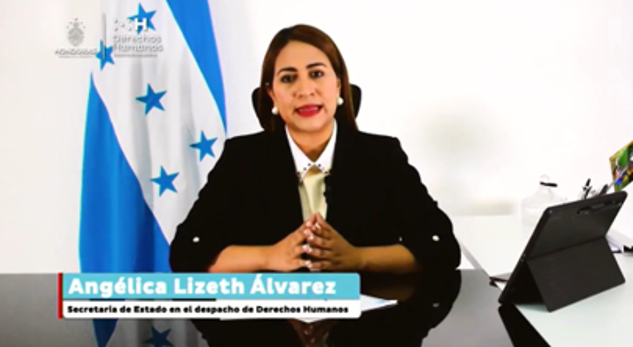
The representative of the European Union agreed with the Special Rapporteur that States must conduct proper search, collection and documentation according to the Minnesota Protocol and other international standards when handling the corpses of potentially unlawful deaths.
The interactive dialogue abounded with countries showing their stance on the recent wars.
Palestine and Israel
Several countries including Iraq and Algeria showed concern over poor treatments towards civilians in Gaza. The Independent Commission for Human Rights delegate of the State of Palestine demanded an investigation to hold the perpetrators accountable. The representative of the State of Palestine showed the strongest condemnation to the Israeli army’s genocide in Gaza and the West Bank. She stated that over 38,000 Palestinians had been killed, and 140 mass graves had been found with people buried alive. She demanded Israel to stop its colonialism in Palestine, which has been occurring since 1967.
The representative of Israel restated Hamas’ brutality in the 7 October massacre. He revealed that forensic investigations were ongoing to identify the victims. During the attack, Hamas members repeatedly shot civilians’ eyes and faces, cut off their limbs and burn their bodies. He mentioned the UN’s experts undermining Israeli forensic experts’ work. The representative also demanded Hamas to release all hostages.
Ukraine and Russia
The Ukrainian Parliament Commissioner condemned Russian soldiers’ war crimes. Many prisoners of war and civilians were arbitrarily executed. He urged UN Member States to use all means to force Russia to respect the right to life and to bring those responsible to justice.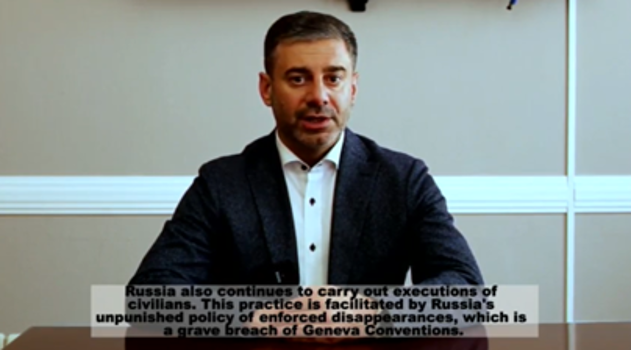 The Ukrainian delegate (on behalf of a group of countries) began her speech by thanking the Special Rapporteur for his visit. She condemned Russia for the unjust war, which lasted for over two years. Russia’s arbitrary and summary executions were the most pressing issue. She quoted evidence from different sources showing Ukrainian soldiers being killed arbitrarily and some beheaded even after they had surrendered. She urged the perpetrators to bring those perpetrators to justice.
The Ukrainian delegate (on behalf of a group of countries) began her speech by thanking the Special Rapporteur for his visit. She condemned Russia for the unjust war, which lasted for over two years. Russia’s arbitrary and summary executions were the most pressing issue. She quoted evidence from different sources showing Ukrainian soldiers being killed arbitrarily and some beheaded even after they had surrendered. She urged the perpetrators to bring those perpetrators to justice.
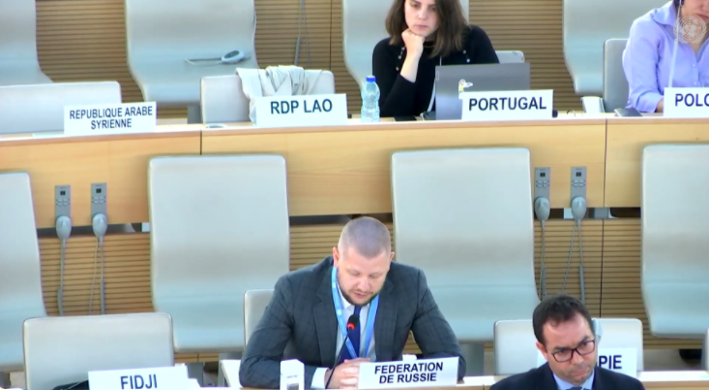 The delegate of the Russian Federation stated that the West had ignored the historical truth, turning a blind eye to the xenophobia promoted in protests on the streets of Europe. He condemned Ukrainian soldiers’ vandalism, which included damaging burials.
The delegate of the Russian Federation stated that the West had ignored the historical truth, turning a blind eye to the xenophobia promoted in protests on the streets of Europe. He condemned Ukrainian soldiers’ vandalism, which included damaging burials.
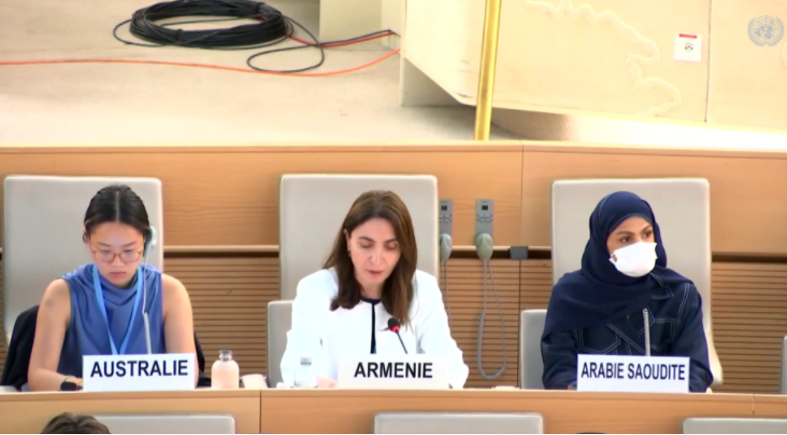 The representative of Armenia highlighted the deaths incurred in the conflicts with Azerbaijan. The country claimed that there were extrajudicial executions, including beheadings, which aroused the UN Committee’s concern. The atrocity was attributed to soldiers not being afraid of accountability.
The representative of Armenia highlighted the deaths incurred in the conflicts with Azerbaijan. The country claimed that there were extrajudicial executions, including beheadings, which aroused the UN Committee’s concern. The atrocity was attributed to soldiers not being afraid of accountability.
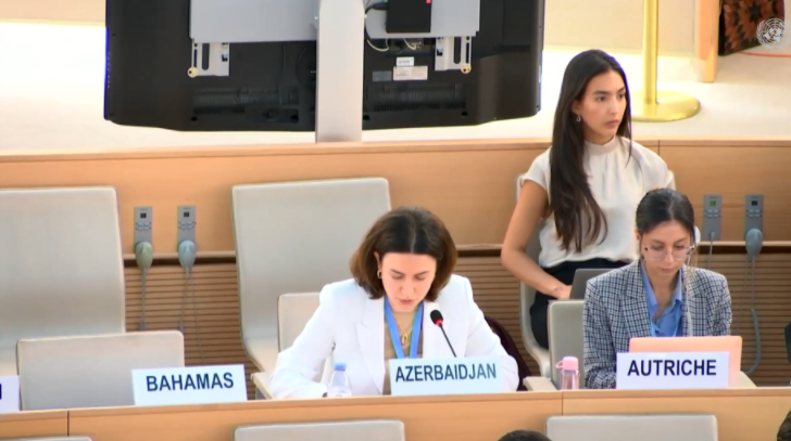 The representative of Azerbaijan alleged that over 4,000 citizens disappeared during the country’s conflicts with Armenia. She accused Azerbaijan of hiding information about the mass graves. Meanwhile, the Azerbaijani government would continue to take all means to rescue the disappeared population.
The representative of Azerbaijan alleged that over 4,000 citizens disappeared during the country’s conflicts with Armenia. She accused Azerbaijan of hiding information about the mass graves. Meanwhile, the Azerbaijani government would continue to take all means to rescue the disappeared population.
Other matters
Apart from the above, the delegate of Iceland suggested a multi-stakeholder approach and universal principles should be found and followed to protect the dead in natural disasters caused by climate change.
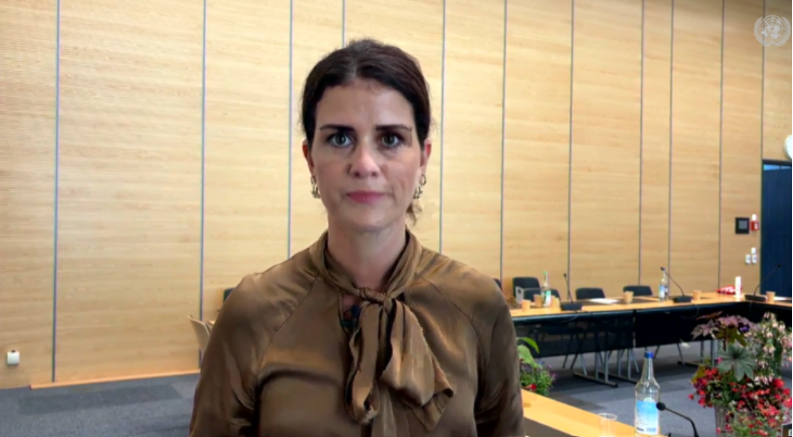
The Pakistani delegate discussed that the use of AI-powered lethal weapons raised critical ethical concerns. Decisions made without human oversight strip individuals of dignity and should be prohibited. Existing frameworks proved insufficient. Robus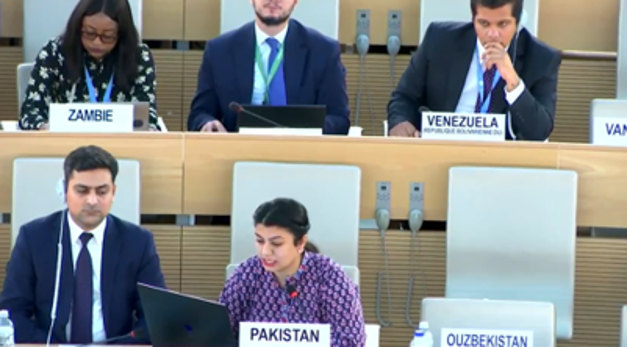 t, human rights-based regulations were needed to govern these technologies. Recent atrocities in Gaza, where automated systems were involved, underscored the urgency of the issue.
t, human rights-based regulations were needed to govern these technologies. Recent atrocities in Gaza, where automated systems were involved, underscored the urgency of the issue.
In his closing remarks, the Special Rapporteur acknowledged the progress made in South Africa, the Philippines, and Moldova. He hoped that guiding principles for protecting the dead could be developed with proactive participation from States in the coming years.
Position of Geneva International Centre for Justice
The Special Rapporteur’s report covered various topics, including pressing issues around the ongoing wars. Although there were legal instruments at different levels addressing the right to life and the right of the dead, a close study of more examples was needed to foster best practices across countries. The Special Rapporteur will report on his visit to Ukraine, giving more insights on protecting lives and deaths in armed conflicts. Extrajudicial execution in the domestic context was worth more attention.
Geneva International Centre for Justice (GICJ) acknowledges the Special Rapporteur’s contribution to reporting on extrajudicial, summary or arbitrary executions. It urges governments to examine existing national laws regarding the protection of the deceased and their families. While cultural preferences may give rise to different laws across jurisdictions, GICJ advocates that high universal standards for treating dead bodies are necessary for upholding human dignity and helping investigate unlawful killings. Meanwhile, stronger international human rights laws are needed to deter non-compliant States from committing atrocities in both armed conflicts and domestic settings.
#HRC56 #HumanRightsViolations #SpecialRapporteur #Justice #HumanRights #HumanRightsCouncil #ArbitraryExecution #UnlawfulKilling #SummaryExecution #ProtectingtheDead #Gaza #Ukraine #Honduras #Geneva #GICJ #GenevaInternationalCentreforJustice




